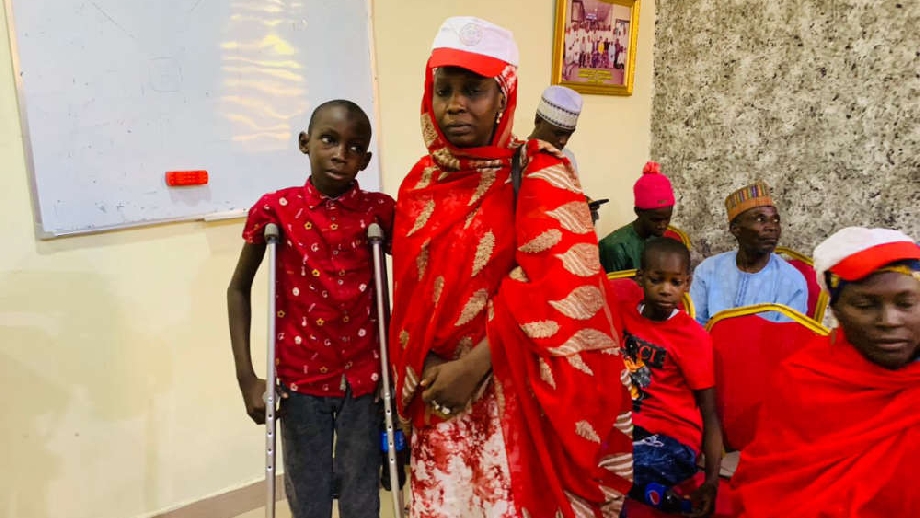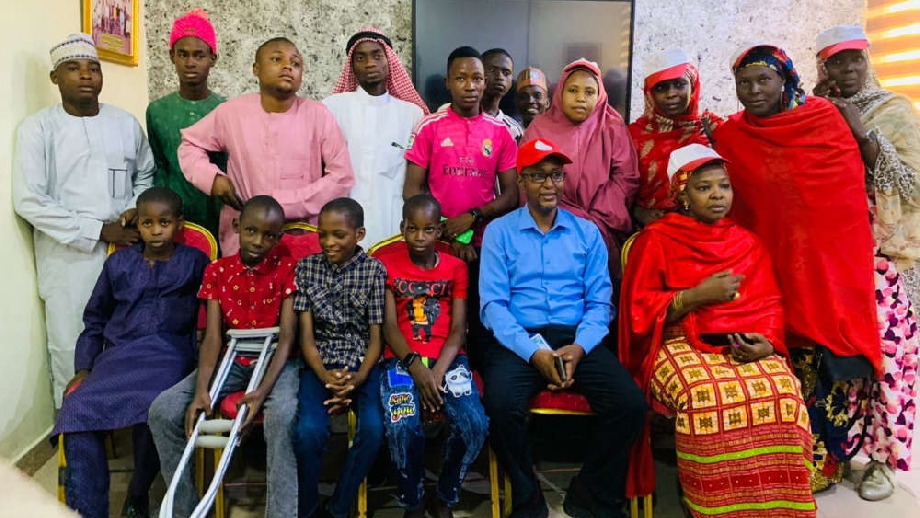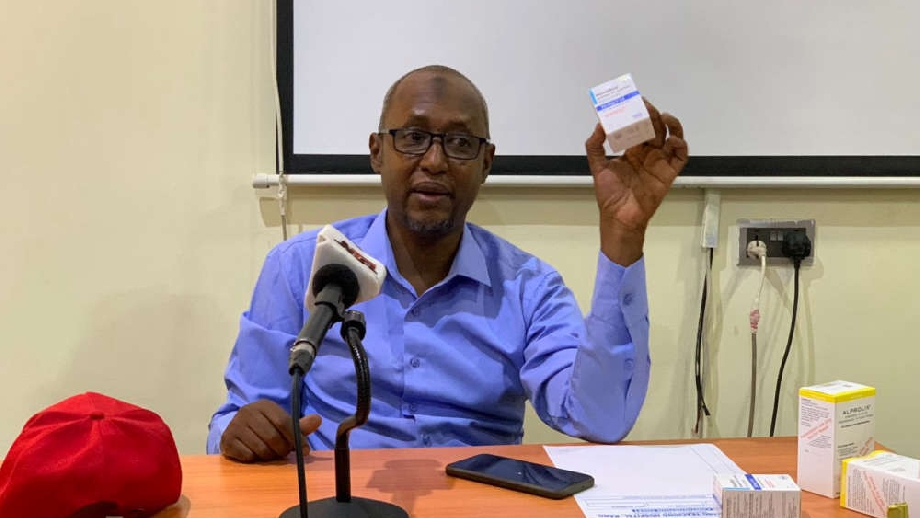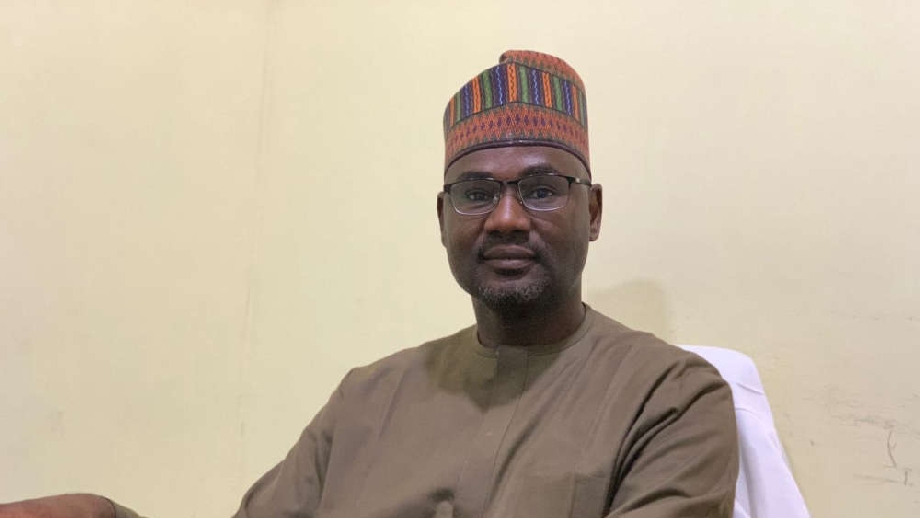
One morning in April, Maryam Abdulrahman, a parent in Kurna Asabe in Ungogo LGA in Kano got out of bed and was looking forward to having a productive day when she noticed blood coming out of her six-month-old baby boy’s diaper.
Deeply disturbed by this discovery, She immediately took him to the Aminu Kano Teaching Hospital (AKTH), a federal government hospital in the state.
After several tests, her 6-month-old baby was diagnosed with hemophilia, a rare bleeding disorder caused by a gene mutation that prevents blood from clotting properly.
The disease is typically passed from mother to son.
“He was crying and we thought it was stomach pain, so I removed his diapers and I saw blood inside it. That was when I rushed him to the hospital,” she said.
Maryam, confused and devastated at the same time, told Nigeria Info that her family “could not afford the standard treatment for the disorder,” blood-clotting medicines called factor concentrates that quickly stop bleeding and reduce swelling.
Maryam had previously lost a baby to hemophilia.
Like Maryam, Like Muhammad
After two years of visiting Kano State's best hospitals, lost tests, delayed results, and wrong diagnoses, 11-year-old Muhammad Muhammad was also diagnosed with the deadly blood disorder when he was two.
The resident of Zoo Road currently walks with crutches after developing complications due to constant bleeding in his leg joints.
The 11-year-old will need a knee replacement worth N8 million. But like Maryam, his family cannot afford it.
Muhammad, who is currently in JSS 2 usually misses half of the school term recovering from the sickness.
He experiences crises three times a week, resulting in sleepless nights.
He also experiences constant headaches caused by the disorder and is barely able to walk without his crutches.
815,000 Hemophilia Cases Worldwide
Data from the World Federation of Hemophilia (WFH) shows there are 815,100 cases of hemophilia worldwide, of which only 347,026 are diagnosed, with 276,900 cases being severe hemophilia.
About 20,000 people have the disease in Nigeria, though the country accounts for only 1,000 cases, with the majority of the cases occurring in Lagos, Kano, and Kaduna.
At the Mallam Aminu Kano Teaching Hospital (AKTH) Hajiyan Garba Karfe Centre For Hematological Diseases, hemophiliacs usually visit daily for medical care.
Symptoms
Hemophiliacs have low factors and bleed longer than necessary from injuries. They are also prone to deep internal bleeding, causing swelling or limb numbness. Arthritis associated with the condition can damage joints or cause disfigurement.

Other symptoms include blood in stool, blood in urine, bruises, heavy periods, or swollen joints.
Medical experts say the best way to treat the deadly disorder is through doses of injections called factors to replace the missing protein.
However, the families of Abdulrahaman and Muhammad are unable to afford the life-saving factor due to the cost.
Hemophilia Dose Costs N1 million to N4 million
A consultant hematologist at the AKTH, Dr. Dalhatu Gwarzo, says the doses to treat hemophilia range from N1million to N4 million per dose; and some cases require seven doses weekly, costing about N10 million.

Dr. Dalhatu Gwarzo. Consultant hematologist
According to him, hemophiliacs require injections after tooth erection and during circumcision, costing N1 million and N4 million respectively.
The World Federation of Hemophilia (WFA), a foundation that assists people born with hemophilia, started providing free treatment in 2010 to reduce the burden on patients in Nigeria.
Supplies are usually sent through the Hemophilia Foundation of Nigeria (HFN) headquarters in Kaduna to the affected states nationwide.
Each of the benefiting patients is registered as a member of the Hemophilia Foundation of Nigeria (HFN) and can access free treatment before and during a crisis.
Dr. Gwarzo says “AKTH has received donations worth over N1 billion” since the hospital started benefiting from the donation 14 years ago.
According to him, the donation helped them “circumcise 30 patients who may have died if they undergo circumcision after childbirth.”
However, Dr. Gwarzo is concerned with the delays in accessing the donations as they are shipped from abroad and, sometimes, held up at local ports.
He wants emphasis to be placed on the rural areas where “hundreds of yet-to-be-diagnosed hemophilics die after circumcision.”
Dr. Gwarzo, who further expressed dismay that the foundation may withdraw from assisting the country with the donation, stressed that the “government must step up” and assist the affected patients.
To sustain the treatment, the hospital provides the facilities to diagnose patients and the storage for the injections (Factors). This stops them from getting spoiled.
A desk officer has also been employed to assist patients seeking hemophilia-related support in the hospital.
Dr. Gwarzo, however, said the hospital’s management recently reached an agreement with the Society for Hematology and Blood Transfusion to further support the hospital and train hematologists on tackling the spread of the disorder.
Impact of Intervention
Muhammad Muhammad's mother, Zainab Hamza, who could not afford the treatment for the health condition revealed that her son is also a beneficiary of the free treatment.
“After I registered him under the foundation, he now gets the treatment whenever his crisis starts. As you can see, he is getting better by the day,” she said.
Like Muhammad, 24-year-old Abdullahi Yakubu, a resident of Gidan Maza in the Tukuntawa area under Kano Municipal who was also diagnosed with hemophilia says he gets “five injections in a week for free,” courtesy of the foundation.
On how to prevent the spread of the deadly disorder, the Head of the Haematology Department at AKTH, Dr. Ibrahim Musa, says “Men with hemophilia history must avoid getting married to women who have hemophilics as brothers.”

Dr. Ibrahim Musa. Head of Hematology Department, Aminu Kano Teaching Hospital
He explained that the deadly disorder is unlike sickle cell anemia which can be discovered through genotype testing, revealing that “hemophilia is silent in women.”
Dr. Musa also said one can prevent birthing children with hemophilia through carrier testing to determine if the woman carries the hemophilia gene. But he said the test cost over N100,000.
As the World Federation of Hemophilia moves to ensure a hemophilia-free society, experts expect all the tiers of government, wealthy individuals, and non-governmental organizations to complement its work.
They also insist that understanding the health history of a future partner’s family is one of the preventive measures to avoid the disease.


